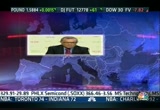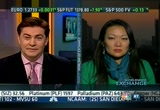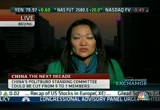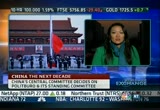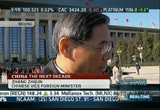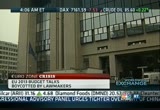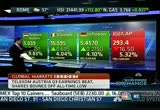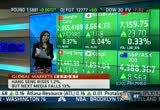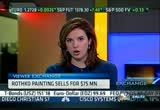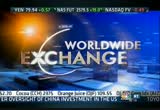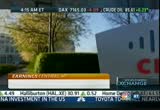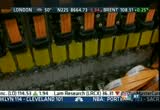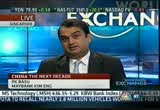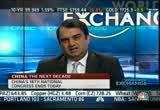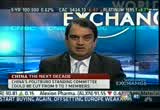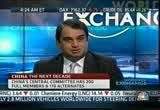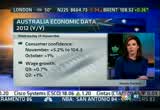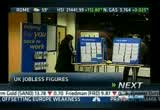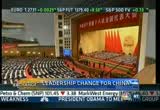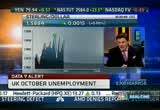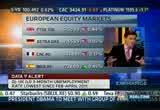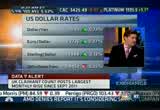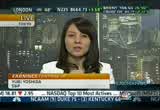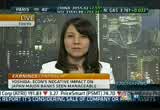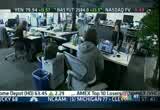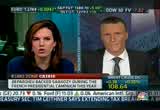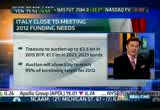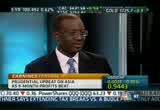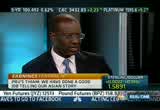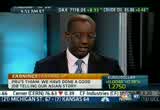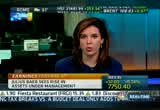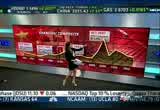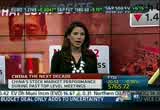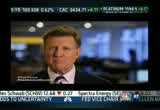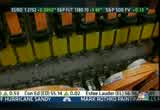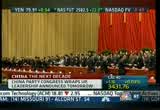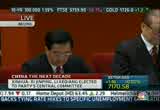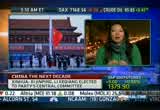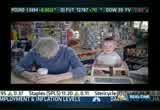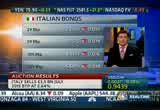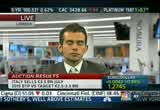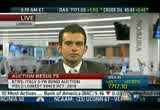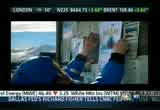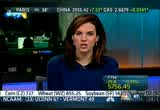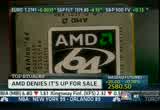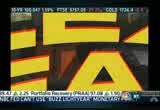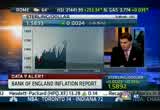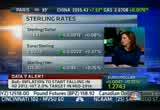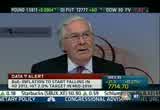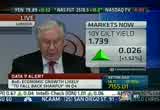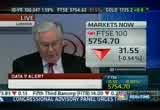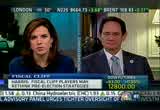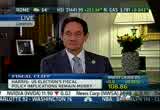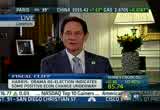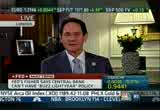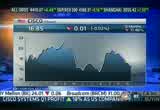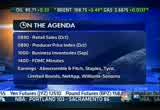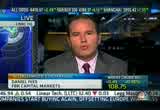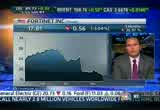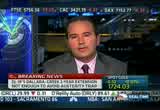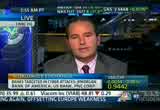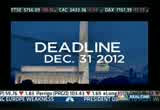tv Worldwide Exchange CNBC November 14, 2012 4:00am-6:00am EST
4:00 am
hello, this is today's "worldwide exchange." i'm ross westgate. >> and i'm kelly evans. these are your headlines from around the world. >> transition of china's top brass is under way. >> coordination across the eu, but in the form of strikes. workers in spain, portugal, italy are set for the nation's first cross-border anti-austerity protest. >> italy is looking to raise $3.5 billion euros. >> cisco posted better than expected first quarter reports.
4:01 am
john chambers sounds a cautious but optimistic note about the u.s. economy. >> you're watching "worldwide exchange," bringing you business news from around the globe. hello. welcome to today's "worldwide exchange". >> 40 unions in 23 countries. that's the strikes that are planned across europe today. so if you thought there couldn't be any coordination, there is coordination. >> how are we going to be affected? >> you know, air travel, surprisingly, they have had to have a lot of cancelling due to strikes. >> we're fully at our jobs. there's two hours of it today. let's remind you exactly what's coming up. we'll have updates from beijing throughout the program as the new generation takes the first
4:02 am
step towards leadership. >> and we're in london. talk to the ceo of wpp, martin sorrel. >> we discuss japanese banks. >> and the latest on cisco from silicon valley as the network equipment maker warns of slowing growth this quarter and some falling demand in europe. >> more than 2,000 delegates have cast their votes for china's new central committee, marking the end of the week long communist party. the world will have to wait one more day before we get the official word who are the members that will make up china's innermost ring of power. eunice is in beijing with more. just run us through how this pans out and what we sort of know at the moment. do we know any more details on numbers of that bureau?
4:03 am
>> reporter: well, they're supposed to be about 25, but right now we're in a very critical period in this leadership selection process, because the central committee, which is a very powerful committee, has already been chosen. that happened this morning. and the 200 or so people who are on that committee are now going to be deciding on who is going to be in the innermost circle of power. as well as the upper elite, so those people are among the standing committee. so the current vice president as well as the vice premier are likely to be on that standing committee if they are indeed going to be elevated to the position of party chiefs, which most people expect. but at this stage, we know that there's a lot of jock i canning for position at this stage. because the country is at a kros road -- crossroads.
4:04 am
many people expected him to really try to have a lot of influence in the final few of that uppermost elite circle. and also, the outgoing president and also seen as a rival. ross? >> do we know what the numbers on that are going to be? people are wondering if there's a significance, whether it's seven, whether it's nine, could it be eight? >> well, there is significance in that, yes, as you said, a lot of people are wondering whether it's going to be seven or nine. there's all the speculation that it's going to be seven. they think it's going to help streamline policymaking. there were several things that
4:05 am
came out of the closing session, that is that the communist party had decided to amend the constitution, so what they did was they included scientific development as a very important principle within the constitution. that will help ensure his legacy. there was also a lot of discussion about environmental consciousness and reform and opening up. that was another policy that was going to be included in the amendment. finally, there was some discussion about the importance to have more oversight, and after the closing ceremony, this is what one of the officials had to say about the need to really crack down more on corruption. >> translator: china is in a stage of social transition. it is inevitable that some problems will arise. however, these problems need to be addressed by the party,
4:06 am
because if they are not addressed, especially corruption, and are not corrected timely, they will weaken the trust people have in the party and our nation. >> reporter: now we're in this wait and see mode. we'll just be waiting for the next big reveal of the communist party leaders. >> and we'll wait with you, eunice. thanks very much indeed, for that. back here in europe, the italian prime minister says last night that there is still a large divide in opinion between britain and italy over the size of the eu budgets. he rebuffed calls from british prime minister david cameron for a real freeze on spending. >> now, eu lawmakers have boycotted budget talks in protest of britain's refusal to approve additional funds for brussels. the european parliament was seeking an additional nine billion euros.
4:07 am
however, the uk has rejected that request. the eu commission and parliament want a budget of 138 billion euros in 2013, representing a rise of 6.8% on this year's level. divisions also continue between eu countries over the appointment of an all-new powerful banking supervisor. they want banking decisions to be made by a separate board, allowing non-eurozone countries to adopt the regime. however, sweden has raised concerns the board must have autonomous powers and that could mean changes to the eu treaty. the german prime minister says this will only delay the supervisor's appointment. >> translator: get the banking union and a single bank supervisor, we will need a treaty change and we will consider it. but if this is needed, then it won't be done early. >> workers in spain and portugal are staging their first ever
4:08 am
coordinated strike starting today. transport systems, schools, and other government-run services will be shut across the peninsula. unions in greece and italy are also planning work stoppages, ross, something like 40 unions across 23 countries will be taking part in what people on twitter are already referring to as november 14th. meanwhile, here we are just over an hour into trade. down half a percent for the ftse 100. it was a turnaround yet, we thought we would get 40 billion plus more euros for greece. it was already agreed. some stocks to watch today, telecomaustria, worth noting that shares hit an all-time low
4:09 am
on monday. today rebounding off that. strong video game sales. here in germany, also up 4% as well. icap, on the other hand, down 5%. sees no marked improvement in the near term. as far as bond markets are concerned, we've got the uk inflation report coming out 10:30 london time, about an hour and 20 minutes from now. employment data in 15 minutes as well. ten-year italian yields are lower. yesterday, 5.96. but we do have an italian auction today. they're going to try and raise up to something around about $3.5 billion of the three-year, september, 2015. a 17-year bond. those auction results will come
4:10 am
out in about an hour or so. on the currency market, yesterday we saw euro-dollar at a fresh two-month law. the yen is weaker. there's now thoughts that prime minister noda may be talking about an early election. aussie dollar still on this 1.04 mark. that's where we stand right now here in europe. what about what's happening in asia? nice to see her back. sixuan is with us. >> yeah, good to see you, ross. most asian markets eked out modest gains after recent losses. the shanghai composite turned higher in the afternoon, allowing investors to wait the unveiling of that committee tomorrow. paper producers rallied with raw materials costs for the sector expected the decline. we saw broad based gains in hong
4:11 am
kong, but next media shares plunged 13% before trading halted. in japan, the nikkei ended just a touch higher after falling for seven straight sessions. sharp shares surged 7% on reports of a possible tie-up with intel and qualcomm, but banking shares were under pressure ahead of earnings, mostly out after the bell. elsewhere, the kospi finished higher by about a quarter of a percent. teches and autos outperformed. costco shares ended flat. taiwan finished marginally in the green. the aussie market snapped a four-day losing streak with banks and utilities lending support. ross, back to you. i'll pick it up, sixuan. good to see you this morning. i will be back to you in a little bit. the global art market is alive
4:12 am
and kicking. this painting just sold for $75.1 million. it's now the second highest price ever for the artist. earlier in the same auction, a work by american artist jackson pollack sold above estimates. we want to know, is art a good place to put your money right now or are investors just looking for safe havens? you can tweet us. that one would look pretty good in your house, wouldn't it? >> yeah. i have to find the right wall. clear a space out. we'll see how we go. could it get worse before it gets better? that's the message from cisco's tech executive. earnings did come in better than expected. we'll talk about it when we come back. i always wait until the last minute.
4:13 am
can i still ship a gift in time for christmas? yeah, sure you can. great. where's your gift? uh... whew. [ male announcer ] break from the holiday stress. ship fedex express by december 22nd for christmas delivery. with features like scanning a barcode to get detailed stock quotes to voice recognition. e-trade leads the way in wherever, whenever investing. download the ultimate in mobile investing apps, free, at e-trade.
4:15 am
4:16 am
revenues and eps both outperforming expectations. wall street expected $11.7 billion in revenue. cisco turned in 11.88. expected 46 cents and cisco turned in 48. guidance was in line. cisco ceo john chambers telling cnbc that he wanted to meet expectations on guidance and be able to perhaps outperform that. so optimistic tone from him on that. 6% revenue growth is what cisco turned in above the 5% target that wall street was looking for and gross margins were pretty well as well. a few other details. says that cisco is committed to china, despite the choppiness in that market. right now they'll stick with it and that that choppiness is factored into cisco's guidance.
4:17 am
also said that the core routing market he expects to grow in the mid single digits going forward. he also mentioned the services business, which has been growing stronger. he said he expected over the next three to five years that the services business as a share of rev of cisco's overall revenue would grow. it won't just grow in overall terms. also said he expects to deliver more details on that at cisco's analyst meeting, just coming up next month. back to you. president obama gets more input today on how to tackle the fiscal cliff. he'll meet with several ceos this afternoon with a press conference at 1:30 p.m. eastern. the group includes the heads of american express, xerox, ge, and honeywell. the white house says he'll call for $1.6 trillion in tax hikes on businesses and wealthy americans, more than republicans are likely to accept.
4:18 am
speaking at a "wall street journal" event tuesday, tim geithner warned congress against delaying a solution to the fiscal crisis. >> if you say again, as we've had to do before, because there was no alternative, we're going to extend and delay, what gives people confidence that people have to negotiate this will come to the table and negotiate? they always believe they can just extend again. i know the cliff is unattractive. it would cause a lot of damage to the american economy. that damage is imminently avoidable. not that complicated to solve. >> hmm, not that complicated. not so sure. just as one leadership transition is behind us -- oh, i should mention before we move on to talk about china. at that same "wall street journal" event, 70% of ceos and top executives say the fiscal cliff is their primary concern. so perhaps justifying all the coverage of it. china's new leadership, that's the all powerful politburo standing committee, will be
4:19 am
unveiled tomorrow. what can we expect? >> reporter: well, it hasn't been an easy task, kelly, to sort through all of these names. but here's what we know so far. jinping is a shoo-in. but the rest, there are eight remaining names up on this wall and probably just five spots left. lots of closed door negotiations and power broking has likely already determined the fate of these. qishan is also popular among citizens in china. gaoli might take over the portfolio instead of this man. gaoli is more conservative and has funded the economic rise of the city that he governs with massive amounts of debt. these two men, they straddle the youth league faction, but li is
4:20 am
considered more of a reformist, while yu is considered more conservative. zhang was passed over at last congress. he's a princeling, talking sometimes brutal style. on the end of this wall right here, we have the underdogs, liu would be the first woman. and wang is the first of a new generation of reformers. thoughts are he might be a little bit too reformist. kelly? >> thanks for that. you mentioned that wang yang right there may be too reformist. does that reflect more broadly a sense that while maintaining the reforms of the current regroup that we're not necessarily going to see an aggressively more reformist china? >> i think the style in china particularly the communist party is to carefully word any kind of talk of reform, and wang yang, like i said, he represents a new
4:21 am
generation of reformers that are asking for it a little bit more forcefully. now, he did hold elections in the province that he governs over. so this may not be the time for him, although he is still relatively young, so he could be up for promotion at the next time. but even the calls for reform, you're absolutely right, have been -- they've had to be very carefully worded, usually contained in some very bland statements. >> that's something that politicians share across the pacific. thanks very much for that. let's get more. good to see you. thanks for joining us. >> good to be here. >> what are investors to do with this chinese changeover? we've heard the speculation there from deirdre. >> i think economic reform is likely to advance, which basically means that we're going to have a period of much slower
4:22 am
growth and credit and money supply over the next three or four years. i think that's one important aspect that investors will be focused on. second i think is that one of the major sources of imbalances in the economy is the property sector, and the interesting aspect of this year is there's been a significant easing of monetary policy. we've seen a very fast rate of growth and credit over the last six months. but the curbs that were put on the property sector a year ago have not been removed. so the authorities remain concerned about the pace which property prices have increased and the pace at which property construction has occurred in urban china over the past decade or so. and so that needs to be reined in. there are other imbalances. of course, too much investment,
4:23 am
too little consumption. the five-year plan already speaks to the need to redress those imbalances. and i think the new leadership will be focused on that, and on ensuring that china escapes the middle income trap that so many emerging economies have faced. >> that's what we're all focused on, pk. the thing is if they do manage to get more consumption as a driver of growth, in the short term, that's going to drop the headline rate of annual growth for the country, so are investors going to think fantastic about consumer growth, or will they be put off by the fact that the actual headline growth rates would fall as part of that? >> well, i think investors will digest that information once it's clear that that is the direction in which policy is going. i think more of the same is really dangerous for the long term. more of the same would basically
4:24 am
be an investment-led growth model of the sort that we've seen in the past decade. what is interesting about this year is that the pace of fixed asset investment growth this year is the slow nest test in tt nine months of the year that we've seen any time in the past ten years. there really are signs of a change in that pattern, but a lot more needs to change. even this sort of 21% growth in fixed asset investment in the year to date is certainly too rapid. you need to see growth rates of 10% or less in fixed asset investments, something that is almost unmimaginable in china. instead, we need to see a much faster pace of consumption growth. that will, of course, be somewhat -- sorry, that will be difficult for china to deal with. because what it would mean is that the actual growth rate of the economy will slow down quite
4:25 am
significantly. and i expect that real gdp will grow slightly less than 7% and slow to about 5% growth in 2014. but that is what china needs go through in order to get over the imbalances that have emerged in the economy over the past decade. >> pk basu joining us. >> that would be amazing. the interesting thing about it is how you react to the resource sector. >> of course. and look at australia, already trying to figure out how it's going to chart growth from here. by the way, the rest of the world trying to figure out if china is not going to be a couple right away. >> talk about australia. >> australia consumers were in the mood to spend. consumer confidence rose to an 18-month high in november. still there could be room for further rate cuts ahead. australia's wages grew at a
4:26 am
slower pace in the third quarter. in queensland in australia, early this morning, they got quite the opposite. a full solar eclipse. i've never seen one of these. completely block out the sun at 6:39 local time. do we have any pictures? thousands have packed state beaches -- my face would be like that. there we go. >> there we go. >> you can still see kelly's smile. that will shine through. that wing crosby film, where he got sent back to the middle ages and he convinced everybody he was a wizard because he knew there was a full solar eclipse. >> i haven't seen that film. i was going to go with you. we'll get uk unemployment data out. it is biggest figure due in an
4:29 am
4:30 am
>> coordination across the eu, but in the form of strikes. workers in spain, portugal, italy, and greece are holding the nation's first cross-border anti-austerity protest today. >> looking to raise as much as 3.5 billion euros. >> cisco's ceo john chambers sounds a cautiously optimistic note about the state of the u.s. and global economy. >> we've had a jump in the number of people claiming unemployment benefits in the uk. the wider jobless has fallen another 43,000. the rate 7.8%. that's actually a decline in that broader unemployment rate to 7.9. the total number of those
4:31 am
employed has risen by 100,000 to 29,576,000. i think there's a record number of people employed in the uk. average weekly earnings up one point through to september, weaker than the 1.9. if you've got cpi -- sorry, rpi running well over 3%, the annual rate, what you're getting is that squeeze on real wages continuing. >> and what's interesting, i just was going back to look, these figures are so similar to the u.s. we see average earnings growth at about 1.8% year on year. the unemployment rate in the u.s., 7.9%. britain is actually a touch better. it goes to show that the financial crisis hits, the strategy is pursued, and these economies -- >> and wage growth and everything else. once again, we have that
4:32 am
dichotomy between those claiming benefits is increased, but the actual total number of the work force is increased. >> the real question will be whether after a strong third quarter, is there a loss of momentum starting in the fourth quarter. >> because that's an october number. so what we might see is a falloff of those temporary workers. >> which will be consistent with the weakening tone of data. >> and also that big job space, the olympics gave it a boost. so maybe we'll see them come back. come off the rolls. so we'll keep our eyes on that. the bank of england governor is going to reveal the latest report in an hour's time. we'll bring you that at 11:30 london time. that will give us a real steer on their thoughts for qe. here we are an hour and a half into the trading day in europe. the ftse 100 down four tenths
4:33 am
flat. the ibex is up. we got the big move yesterday. >> they finally get it. and the spanish ten-year yesterday was very telling for market action in europe and into the u.s. session. we can take a look at that this morning and see the improvement. yesterday we looked at spain and italy. they were just near 6%. today a rally. 5.82%. 4.94% for italy. they're ahead of the auction that we'll bring you a little bit later in the program. guilds and bunds moving up as investors appear to be rotating back in to us this morning. the euro up above 1% today. >> yeah, we were down 126. yesterday, we were up at 127.37. today the yen is weaker. we'll talk about japan in just a second. sterling unmoved actually after that mixed employment data.
4:34 am
may be the forerunner here. >> i said the euro is up 1%. that's actually up against the yen. against the dollar it is up about a quarter of a percent. there's a mixed bag of profit reports from some japanese banks today. the country's third largest lender posted a 5.5% rise, that was in line with the bank's forecast. but profit at the country's number two bank dropped by nearly 100% in its second quarter. hurt by sharp losses on equities in particular. profit at japan's biggest lender has dropped by nearly half from a year earlier, so against that backdrop -- you can see that the share prices of mitsubishi down 1.5%. joining us from tokyo is the director of the financial services. what is the message here from these earnings from japan's biggest lenders?
4:35 am
>> yes. i think the earning results are pretty much within expectation. i think the weakness in the stock market has actually hit these banks. but the credit calls for all of the major banks are in control and we think that the results are pretty much in line. >> i wonder to what extent -- you know, we had these results coming out from the banks that show they're struggling. we know the japanese economy just posted a major contraction, that the strength of the yen has been an issue, that now we have noda saying he may -- and let me just get the phrasing of this rights. we have him basically saying that he is offering to dissolve the ds on friday and call a general election. it seems as though both the political and economic situation in japan just continues to worsen. >> yes.
4:36 am
actually, the economic condition in japan is very, very -- in a worse than expected situation going forward, we think. first of all, because of the stronger yen, the export industry is hit very hard. we know that a lot of manufacturers had a very weak result for this results, and we think the gdp is a disappointing figure for the economy of japan. and we think that the major banks' credit costs is very, very low. we don't think this is forward looking provisions. we think going forward, there is a possibility of these major banks, need to increase their credit costs, increase their
4:37 am
provisions in order to tackle with the problems, economic problems in japan going forward. >> and just finally, do you view the credit worthiness of these financial institutions as worse off given the health of japanese sovereign than they would otherwise be on their own? >> the credit rating of the major banks for s&p, we incorporate government support for the ratings. so if the sovereign worsens, the rating will be impacted negatively. we think the stress that is coming to these companies, banks on the standalone basis is controllable, but if the sovereign is to be downgraded, this would hit the ratings of these banks. >> that's for sure. thank you very much for your time this morning.
4:38 am
the evening for her. toyota has announced another massive global recall. speaking of the challenges for japanese companies, it's the second for the company in less than two months. the japanese auto giant says nearly three million vehicles, including certain prius models, are affected. toyota says the problems lie with their steering mechanisms and hybrid water pump systems. in october, toyota recalled $7.5 million vehicles worldwide because of faulty power window switches. today's announcement came before the market closed and shares ended down .8 of a percent. in south korea, shares of net korea power are up. we have more from seoul on what supercharged these earnings. >> the number one reason is higher demand for electricity during the hot summer season here in korea. and the second one is electricity price hikes of 4.9%
4:39 am
back in august. its net profit came in at $862 million, much better than market expectations, but do note that kepco tends to perform best in third quarters, given hot summer weather here in korea when air conditioners really suck up power. but looking ahead, though, for the fourth quarter of this year, numbers are not expected to impress given an unscheduled shutdown of two nuclear reactors here in korea. also, additional price hikes that kepco is likely to demand from the government are likely to be rejected by the government given the government's efforts to really tame inflation and to protect the manufacturing industry here in korea. back to you. facebook has been under pressure. julia borsten has more on the lifting of the company's latest
4:40 am
lockout. >> reporter: facebook investors are bracing for a selloff. employees and investors will be able to sell 804 million shares. with the stock down more than 45% since its may ipo, the big question is where these shareholders will hold on seeing additional upside. the past two lockout expirations have both hit facebook stock, at the end of october when about 230 million shares became available to sell that day the stock lost nearly 4%. so what can we expect from this, the biggest expiration? the number of short sellers is on the decline, with a number of shares borrowed down by almost 40% in november. since everyone is already expecting the stock to be down on huge volume, the actual negative reaction to the stock may be less severe. facebook's recent third quarter results he says will also likely be a positive factor in
4:41 am
supporting the stock this week. pivotal research groups says he believes downward pressure should be limited as demand from institutional investors is likely to emerge if selling proves heavy. the next comes september 14th when selling stock holders in the ipo will be eligible to sell another 155 million shares. the fact that facebook continues to outline new venues for growth, including more mobile ads and a gifts initiative should help. we'll see if it keeps shares from flooding the market. back over to you. still to come on the program, another famous french citizen is fleeing. >> we'll let you know who it is when we come back.
4:44 am
4:45 am
pollack sold above estimates, $40.4 million was the take for that one. is art still a good place to put your money? share your thoughts with us here. you know how. ross? >> don't misout on that. french president francois hollande gave his first public address. he insists his planned reforms will turn the economy around. but in a high-profile blow to those presidents, gerard is the latest frenchman to flee the country because of the high income tax increase. stephane has more in paris. as we look at some pictures, how
4:46 am
has this gone down in the rest of france? are they viewing this as a criticism of the french tax system or of him? >> it's all about francois hollande. he explained the policy of the government, including fiscal policy. there's not much room for depardieu this morning. but it's not a big surprise. it's one less paying taxes in france as a result of the new tax policy implemented by the socialist government. it's a report from the belgium newspaper, which is reporting that gerard depardieu brought a property in a small village located just by the french border, and plans to escape the tax implemented by the government. the mayor of the village was unable to confirm that gerard
4:47 am
depardieu bought a home in the village. it wouldn't be surprising, though, because this small village already has a 27% french population. it's not glamorous like london, geneva or even monaco, but it would be the place to pay less taxes and being close to french border. he earned two million euros back in 2010, 3.5 million euros in 2008. obviously he would be impacted by this new 75% income tax rate, which would be implemented for the part of your salary above one million euros. >> just curious how the attitude is among the french wealthy, because it sounds like gerard depardieu has a history of being eager to leave his own country saying in the spring, i don't like the french too much, by the way, in one of his tv
4:48 am
interviews. i iss tv interview. so should we really see this as a sign more broadly of the way that the french are reacting? >> he's a famous actor. if you remember some months ago, gerard depardieu was urinating in a bottle in a plane because he couldn't hold it. i don't think this is representative of french people. also he made clear that he would support nicolas sarkozy, not the socialist candidate at the time. now the main difference between gerard depardieu who is really a symbol in france, and for instance, the ceo of adhm who is also reported to be leaving the country, bernhardt is an investor. it's a symbol. i doubt the impact on the french economy would be really important.
4:49 am
>> thanks for following that story with us this morning. >> got some flashes of christina. >> she's making comments about asia. she's also mentioning that what the imf expects is a "real fix, not a quick fix to the greece debt woes." so anything that we get on this disbursement of funds is going to be critical. she says all of greece's partners share the same objectives to put greece's program back on track. >> it's a fascinating clash, isn't it? because it's the ones that are hard on austerity in the north of europe who want the imf involved for the cloak of respectability, but they don't agree with any of the imf's policies. >> right. >> i don't know where that one's going. that's going to be interesting. meanwhile, italy is on track to meet its borrowing targets. the result will be released at around 11:10, 20 minutes from
4:50 am
now. the treasury is auctioning up in bonds between 2015 and another 1.5 billion. you've got to remember, this time last year as mr. berlusconi was leaving office and mr. monti was arriving, we were wondering how they'd get through 2012. a couple of earnings now to bring you this morning. prudential has just edged analysts' expectations with a 13% rise in new business profit to $1.7 billion pounds. strong growth in asia was behind the uplift. the ceo told cnbc prudential is facing increased competition as a result of its asian acquisitions strategy. >> we are big victims of our success. i think we've done a good job promoting asia and telling the
4:51 am
asian stories. almost every company has a strategy to develop health. the strategy is being imitated. it means more competition. he told me look, we look at what you did. it was a multi-country agreement and got 150 branchs in thailand. doubled every year. so for a bank, that's very atrackive because it's high quality earnings, commission income, not market sensitive. so our edge is our track record. we have the largest platform. we have uob in five countries.
4:52 am
banks come to us because they know we can deliver. but we try to stay away from situations that are too competitive because it's very hard to trade value. you don't choose your partner by auction. this is a 15-year marriage. we're going to have to be 15 years together in. the end, it's more a marriage. >> looking at your pie chart again, exposure in china tiny versus how big the mainland is. it has been slowly evolving. there are hopes of a leadership transition that's taking place in china now. might be just the signal for many different businesses to get back into china. how are you viewing it? and are you poised on the sidelines if regulation does loosen up to allow more exposure there? >> that's exactly what we do.
4:53 am
we are trying to learn. we think it's an extremely attractive market. to date, the totality, all of us together. most countries where we operate, we are 15% to 20% over market. so we don't have the size we would like to have. we believe in china. we are learning and waiting for such time. china is going to have a major demography transition, will require a lot of capital. and when the time comes, hopefully we'll be there ready to do what we do best. >> elsewhere, the bank has -- over the first nine months of the year. net losses at the world's oldest bank hit 47.4 million euros during the quarter with trading gains offset by loan losses of 461 million euros. >> also in the financial sector,
4:54 am
julius baer. carolyn has more from zurich. >> hi there, kelly. a better than expected 10% increase in assets management by the end of october to 187 billion. the company also said net new money inflows were continually positive and now in the upper range, the upper end of its target range. that is from 4% to 6% in annualized growth. a bit of a letdown is the fact that julius bear did flag lower margins and higher costs. that in large part is the result of the lower activity in the middle part of this year, and that was also quite volatile. we're seeing a selldown in stock. separately, also posted a bit of an update on the acquisition of the international wealth
4:55 am
management business of merrill lynch. it said that the financing of this deal was now completed, and they expected to close at the end of january. kel sf kelly? >> thanks very much for that. china's communist party concluded today, but the standing committee will only be named tomorrow. deirdre has been looking at leadership positions in the past. she joins us now with the details. >> the shanghai composite has declined about 2.5%, despite data showing a rebound in the chinese economy. if you've been tracking the performance of mainland equities, you shouldn't be too surprised. starting with 1992, the 14th congress, mainland equities declined about 4.2%. five years later in 1997, the shanghai composite down about 5.7%. 2002, down bay similar amount,
4:56 am
6% during the week that the congress takes place. look at this. in 2007, this was an absolutely stellar year for mainland equities. it hit 6,000 points. during the week long congress, the shanghai composite also declined 1.49%. it just goes to show you that a lot of uncertainty does abound during these leadership change-ups, as much as beijing would like to keep things steady. this year, there's an extra dose of the unknown given the scandal that unfolded just before congress and the number of candidates vying for spots on the standing committee. i showed you all their faces not too long ago. >> just wondering what the chatter is about the shanghai market next year. is there a sense the chinese retail investor might finally get interested? >> it's been three pretty dismal years on the shanghai composite. mainland equities looks set for about a 7% decline. we had an analyst that said that the bond could be even lower.
4:57 am
what's interesting is that over the last week, while the congress has been going on, we've been getting some better than expected economic data in the form of trade numbers. also industrial output numbers. yet the shanghai deposit has still declined. the valuations are so low, almost at record low, but no one seems to want to get in, at least yet. >> and property prices still near those record highs. thanks very much. >> we'll take a short break. we'll ask martin sorrell what international business wants. having you ship my gifts couldn't be easier. well, having a ton of locations doesn't hurt. and my daughter loves the santa. oh, ah sir. that is a customer. let's not tell mom. [ male announcer ] break from the holiday stress. fedex office. with features like scanning a barcode to get detailed stock quotes to voice recognition. e-trade leads the way in wherever, whenever investing.
5:00 am
welcome to "worldwide exchange." >> these are your headlines today from around the world. >> transition of china's top brass is under way. the new central committee will name politburo tomorrow. >> john chambers is optimistic about the state of the u.s. global economy. >> and coordination across the eu, but in the form of strikes. workers in spain, poj gal, rtug greece are holding cross-border protests. >> we got a bond sale, we'll get the results of that in the next ten, 15 minutes.
5:01 am
very good morning to you. we have great numbers out of -- lack of growth numbers out of europe. gdp contracting minus 7.2% on the yerom revised minus 6.3% on the year in the second quarter. the flash estimates i'm afraid the contraction is getting worse, effectively. third quarter, worse than the second. minus 7.2% the annual rate of contraction. so as we wait to see whether they can get the extra billion this week to roll over the five billion tea bill, i'm afraid the economics are still getting worse, kelly. >> it's remarkable, falling by 7% in a year. if you think about the depth of decline in gdp, peak to trough,
5:02 am
it was not 7%, although it is now approaching that level in spain. but again, 7% in a year for greece in its fifth year of recession. just extraordinary. futures here don't seem to care. the dow jones industrial average is looking to add more than 80 points at the open, just below that 12,800 mark. we're seeing a pretty good rebound here shaping up across the board, if current conditions hold this morning. it follows a better tone across europe. we can take a look at what's happened in the overnight session. the ftse is down about .4 of a percent. we see the xetra dax adding about a tenth of a percent. the ibex 35 leading the way, up three quarters of a percent. continued concerns about whether greece will get its funds. >> yeah. i think most people think they will. germany's just not ready to cut
5:03 am
them loose. really just quibbling about the details. bund yields slightly higher. italian yields, 4.92% are also lower as well. we'll get the results of this auction. really concentrate on the three-year, up to 4.5 billion of the 2015. also a couple of others. guilts today are high yields. 1.75%. when you take a look at claim accounts for the previous months, people claiming unemployment benefits. that jumped 7,000. maybe a sign that all the temporary jobs created by the olympics are starting to come off the payrolls and go back into claiming unemployment benefits. could be a start of a trend. the other key figure there is average earnings growth up 1.8%. inflation up almost a full percentage point higher and more
5:04 am
on the rpi. so the real squeeze in take-home pay continues. as far as euro/dollar is concerned, bouncing off that two-month low we hit yesterday. yen is weaker across the board. there are now thoughts that japanese prime minister noda may call early elections. that's where we stand here in europe. li sixuan is with us out of singapore. >> asian markets had a modest rebound after recent losses. the shanghai composite turned higher in the afternoon. investors will await the unveiling of that standing committee tomorrow. property lost ground after hinted at expanding the property tax trial, but paper producers rallied with raw material costs for the sector expected to decline. hong kong shares recovered from a one-month low. metals producers gained on supported policies, but next media shares plunged 13% as the
5:05 am
deal to sell the unit in taiwan hit regulatory hurdles. in japan, the nikkei ended just a touch higher. sharp shares surged over 7% on reports of a possible investment by intel and qualcomm. but banking shares were under pressure ahead of earnings, mostly after the bell. elsewhere, the kospi finished higher bay quarter of a percent. teches and autos outperformed. in taiwan, apple suppliers leading the gains. meanwhile, the aussie market snapped a four-day losing streak ending higher by .4 a percent. >> now cisco systems might give a positive boost to markets today after the network equipment maker posted better than expected first quarter results. jon fortt breaks down the numbers. >> cisco systems delivered
5:06 am
strong results after the bell. revenues and eps both outperforming expectations. wall street expected $11.77 billion in revenue. expected eps of 46 cents. cisco turned in 48. also guidance was in line. cisco ceo john chambers telling cnbc that he wanted to meet expectations on guidance and be able to perhaps outperform that. so optimistic tone from him on that. 6% revenue growth is what cisco turned in above the 5% target that wall street was looking for. and gross margins were pretty solid as well. cisco guiding to 61% to 62% for the fiscal second quarter that we are in right now. a few other details says that cisco is committed to china despite the choppiness in that market. right now, they'll stick with it, and that that choppiness is factored into cisco's guidance. also said that the core routing
5:07 am
market he expects to grow in theed the ed mid single digits going forward. he also mentioned the products business going stronger. he expects over the next tle to five years that the services business would grow. it won't just grow in absolute terms. it will also grow as a share of revenue overall. also said that he expects to deliver more details on that at cisco's analyst meeting just coming up next month. back to you. >> we'll keep an eye out for that. jon fortt with that reporting. coming up, we'll get more on cisco's earnings and we'll be joined by stephanie link, chief investment officer at thestreet.com. more than 2,000 delegates have cast their votes for china's new central committee, marking the end of the week-long communist party congress, but the world will have to wait another day before we get the official word. who are the members that will make up china's most powerful
5:08 am
group, the politburo standing committee. eunice is with us in beijing. eunice, as we look from where we are at the moment, do we have any feeling on how many members there will be in that standing committee? the implications of that and the likely makeup? >> so far, we know that it's going to be somewhere between seven and nine. that's the number that people have been throwing out there. there's been a lot of expectation that the number on the standing committee, which is currently at nine, will be trimmed down to seven, which could potentially mean that policy will be easier to push through. some of the other things that people are talking about here is just how incredible it is that this is now the end of an era for the current president as well as the premier, really stepping aside as party chiefs for the next generation of leaders. now, the delegates today had come together and they approved the work report, which is endorsed by the president.
5:09 am
>> translator: the most important policies and arrangements and greatest achievements will surely play a critical role in pushing forward the great course of socialism with chinese characteristics and the great development of the party. it has profound influence on the work for the future. >> reporter: and the congress also approved several amendments to the party constitution, they included an increase of environmental awareness, also reforms, and finally, scientific development, which is a very key principle of president jintao, which ensures his legacy here. >> some people will be saying why can't it be eight members? i'm presuming that's because the numbers don't work. >> historically, actually, it was seven during the '90s and
5:10 am
then it was increased to nine at one point. now people are saying that it's probably going to come back to seven again to try to really see whether or not it's going to be easier to push through some of the poli. now, everybody's talking about now that this current period, these next several hours are really, really critical, because you're seeing the central committee, which was selected today, the members of that -- about 200 members or so in the central committee are getting together and they're behind closed doors and their third cousin is basically in that conversation, trying to decide who is going to be the member of the politburo, so this is kind of an upper echelon -- an inner circle of power. but among that inner circle of power, there's like the super, super elite power who are going to be chosen as well. so we are quite certain that jinping is going to be part of that standing committee. it's the other names that we're
5:11 am
not quite so sure about. there have been a lot of names bandied around. we expect some of the party elders, known as being more business-friendly, he was the one who helped shepherd china through the whole wto process. he helped to make the party a little bit more capitalist, included a lot of entrepreneurs into the party. he's been seen as one who's trying to exert more influence over who is going to end up in that very, very upper echelon power. so we'll see how it all plays out. still not sure. it could possibly be the outgoing president's camp. >> oh, to be a third cousin on the wall listening in on that conversation. eunice, good to see you, thanks very much indeed. i know you've got a busy day. >> she got your joke. see? there you go. president obama gets some more input on how to tackle the fiscal cliff.
5:12 am
>> press conferences scheduled for 1:30 p.m. eastern. the group includes the head of american express, xerox, ge, chevron, procter & gamble, and honeywell. >> the president kicks off budget talks with oil makers on friday. the white house says he'll call for $1.6 trillion on tax hikes on businesses and wealthy americans. timothy geithner's warned congress against delaying a solution to the fiscal crisis. >> if you say again, as we've had to do before, because there was no alternative, we're going to extend and delay, what gives people confidence that people have to negotiate this will come to the table and negotiate? because they'll always believe they could just extend again. do i know the cliff is unattractive? it would cause a lot of damage to the american economy. that damage is imminently avoidable. not that complicated to solve. >> while the global economy may be struggling, the global art market is still alive and well.
5:13 am
take a look at this mark rothko painting from 1954. it's called number one royal red and blue and it just sold for $75.1 million. it's the second-highest price ever paid for the artist. earlier in the auction, a jackson pollack also sold above estimates at $40.1 million. is art still a good place to put your money? or are investors just looking for safe havens? you can join the conversation here on "worldwide exchange." if you want to respond to that or anything else you've heard on the program. ross? i believe there was a little bit of pink in there as well, which is where i'm at today. italy is close to meeting its funding needs for 2012. the latest three-year bonds. we'll have analysis and the yields when we come back.
5:14 am
♪ ♪ ♪ [ male announcer ] some day, your life will flash before your eyes. ♪ make it worth watching. ♪ the new 2013 lexus ls. an entirely new pursuit. frank, instead of scratching your way to retirement, get on e-trade. set up a real plan. frank! oh wow, you didn't win? i wanna show you something... it's my shocked face. [ gasps ] [ male announcer ] get a retirement plan that works...
5:16 am
5:17 am
october 11th. the lowest yield since october 2010. we've got a couple of other bits of paper as well. joining us for more, the european economist -- it's kwiequite some achievement, wouldn't you think? >> it's always a pretty good achievement, which comes when a bond is for italy remarkably stable over the last few months. most of the funding program is done for this year, but i think the market would quickly focus on the race, probably not fully prized and would be extremely important moving into next year, when the pipeline of supply for italy would be extremely challenging. >> when we first heard the floating idea which has brought yields down considerably, if we had said then that it's unlikely
5:18 am
that they'll be enacted until 2013, would you have expected yields to be this contained? >> well, i think that's one of the factors which is going to be relevant. as far as our view is concerned, i think the trajectory of the economy is probably the most important element at this stage. we do believe that the focus point of tax increases that we've seen the last few months of the berlusconi government, and then obviously with the fiscal correction that monti announced will have a negative impact on growth. within the government, still optimistic in expecting a very modest contraction in gdp next year, so obviously the fiscal structures are raising the pipeline. then i think all the sustainability will be
5:19 am
challenged. and that will be difficult for our year. >> it does seem as though the holdings of italian government debt are more and more domestic and concentrated in the banks. >> absolutely. if you look at what -- there is clearly a race for italy that goes to the downside in terms of the economy and the higher bond yields. there are two factors which could be driving in the opposite direction. one is home buyers. there is a relocation of that towards domestic. that is good because obviously it's insulated in the bbc market from selling pressures. on the other hand, if you look at the microdynamics, foreign demand is probably the only hope for italy to surprise to the outside next year. but we just revised the gdp focus, we don't think it's going to be something that could materialize next year. >> i think it was called weak if not bleak for 2013. >> exactly. >> so we'll save that one for
5:20 am
5:23 am
chin new leadership, the all-powerful politburo standing committee, will be unveiled tomorrow. deirdre has a breakdown of the likely names in this report. >> they are expected as shoo-ins, but the rest, eight remaining names up on the wall and probably just five spots left. lots of closed door negotiations and power broking at the top has likely already determined the fate of these men and one woman. wang is also popular among officials and citizens in china. zhang, there have been rumors that he might take over the economy portfolio. these two men have very different approaches to the economy. wang is seen as more free market oriented while zhang is seen as more free market. these two men might be considered moderates.
5:24 am
over here, we have zhang, known as the iron first investor. on this side of the wall, we have the underdogs, or the wild cards. lui would be the first woman. wang yang, thoughts are that he might be too reformist and upset the leftists that are still sore over the ousting of bush eli. toyota has announced another massive global recall and it's the second in under two months. the japanese auto giant's 2.8 million vehicles are affected. toyota says the problems lie with their steering mechanisms and hybrid water pump systems. in october, toyota had recalled 7.5 million vehicles worldwide because of faulty power window switches. shares were down about .8 of a percent in trade, so all things considered, not a huge hit.
5:25 am
>> absolutely. amd denying reports of hiring jp morgan. amd could sell some of its patents. the company says it's not actively pursuing either avenue. it deals with slumping sales and that consumer shift we talked about from pcs to tablets. >> which i still have yet to get onboard. i've got a laptop. i just like the keyboard. that's the same reason i've got the blackberry. >> with the new tablets, amazing keyboards. >> i know, i know, eventually. let's take a quick look at the agenda in the u.s. october retail sales at 8:30. watch for hurricane sandy impact there. also the producer price index. at 10:00, september business inventories are out. at 2:00, it's minutes from the fed's latest meeting. lots of earnings to hear from. abercrombie & fitch, staples and tyco all report results before the open.
5:26 am
5:29 am
welcome back to "worldwide exchange." >> these are your headlines today from around the world. >> the transition of china's top brass is under way as jintao steps aside as communist party leader. the new central committee will name the politburo's inner circle tomorrow. >> cisco posted better than expected first quarter numbers. >> italy on track to meet its funding needs for 2012. rome auction s 3.5 billion euro. >> you're watching "worldwide exchange," bringing you business news from around the globe. before we hear from mervin king on the british inflation situation, let's take a look at what markets are doing here as we gear up for the open of the u.s. the dow jones is implied to open higher by almost 70 points but
5:30 am
it has come off its highest levels of the morning. the nasdaq and s&p 500 are also pointed higher as well. this follows losses yesterday and a string of losses across europe, as basically the questions over whether greece would get its next round of disbursement funds continue. take a look at what's been happening across the european board. we're seeing more of them move into the red this morning. the last time we checked in, it was only the ftse. xetra dax and cac adding to that. only the ibex is bucking the trend for now. >> the bank of england inflation report statement is being released. they say the near term growth forecast has been cut. they've raised the inflation forecast. these new forecasts suggest further stimulus sun likely any time soon. they're upping that inflation forecast of unexpectedly large rise in home energy prices. and annoy saying inflation falling the second half of 2013 and they'll only hit the 2% target in mid 2014.
5:31 am
so basically they're going to hit their target almost a year later than they forecast, just three months ago. so in three months, they have pushed out their target of inflation by a year. so what we're seeing now is the sterling gains against the dollar. guilt futures are extending their losses on this report because clearly it suggests they'll be reluctant to do any more qe, let alone the fact they're also questioning its efficacy as well. economic growth to fall back sharply in the fourth quarter. rpi over 3%. the squeeze on real incomes in the uk continues because of this higher inflation profile. they say use of profits from bond purchase to pay government debt the same as 35 billion of qe. that's just to remind you that what's going to happen now is the government is going to take
5:32 am
back the interest it's already paid to the bank of england and take it back, which is what they do in japan and the u.s. anyway. >> at the same time, they're lowering their growth target. they're now seeing growth of 1.75% year on year. that's down from the 2% forecast the last time around. so you have a situation where despite a weakening in demand growth prospect, the central bank appears to be more concerned about what's happening with the inflation side of things, even though those price hikes are owed more to frankly fiscal austerity measures than to any strength in demand. >> yeah. i think tied in with this, the people are actually questioning with qe -- people are saying what good is it actually going to do. i wouldn't be surprised -- they have expressed this, about what other type of qe they can do. >> i think if there's one lesson from japan in this, there's no point in being timid.
5:33 am
here's mervin king speaking. >> it is not a reliable guide to the future. just as growth in q-2 gave a misleadingly week picture of the economy, so growth in q-3 has been boosted by one off factors and gives an overly optimistic impression of the underlying trend. continuing the recent zigzag pattern, the boost from the olympics and the summer is reversed, indeed, output may shrink a little this quarter. it's difficult to discern the underlying picture. it is probably neither as good as the zigs suggest more as bad as the zags imply. despite a resilient labor market, as we saw again in this morning's figures, the economy has barely grown over the past two years.
5:34 am
that unexpected weakness reflects the impact of the euro area crisis and its effect on confidence and bank funding costs and the sharp squeeze on real incomes from higher than expected world energy and food prices. as some of these headwinds abate, a slow recovery is in progress, brought about in part by the funding for lending scheme. the committee's overall judgment about the outlook for fourth quarter gdp growth is in summarized in chart one on page six of the report. as usual, it's based on the assumptions the bank rate falls apart and that the size of the bank's asset purchase program remains at 375 billion pounds. in the near term, growth is sluggish. further out it's likely to pick
5:35 am
up gently as households' begin to strengthen. it's likely to be above its historical average over the entire forecast period. the subdued recovery reflects a judgment that the global environment will remain unfavorable. in addition, the committee believes that the effective supply capacity of the economy is likely to continue to grow slowly over the forecast period. in october, cpi inflation picked up to 2.7%, partly as a result of higher university tuition fees. the committee's best collective judgment of the outlook for cpi inflation is summarized in chart 3 on page 8 of the report and is based on the same assumptions about monetary policy as chart 1. inflation is likely to remain above target for the first part
5:36 am
of the forecast period and is higher than in august reflecting recent outturns and the announcement of large increases in household energy prices. further declines in inflation not being checked by price increases in sectors where market influences are weak. the rising student tuition fees alone added over not .3 percentage points to yesterday's inflation figure and do pestic gas and electricity prices are raising faster than wholesale energy prices. such factors are pushing inflation -- >> the point mervyn king is making there that part of the reason inflation targets are going up at the bank of england is because of all the inflation figures. we'll be back with more analysis in just a bit. our uk viewers will still be staying with that feed from the bank of england. but in the meantime, shifting
5:37 am
our attention over to the u.s., president obama will get more input today on how to tackle the fiscal cliff. he meets with several ceos this afternoon with the press conference at 1:30 p.m. eastern. the group includes the heads of major u.s. companies like american express, xerox, ge, chevron, procter & gamble and honeywell. on friday, the white house says he'll call for $1.6 trillion on tax hikes on businesses and the wealthy, more than republicans are likely to accept. speaking at a "wall street journal" event tuesday, treasury secretary tim geithner warned congress against delaying a solution to the fiscal crisis. >> if you say again, as we've had to do before because there was no alternative, we're going to extend and delay, what gives people confidence that people have to negotiate this will come to the table and negotiate? because they'll always believe if they hold out they could just extend again. so i know the cliff is unattractive. it would cause a lot of damage to the american economy. that damage is imminently avoidable.
5:38 am
not that complicated to solve. >> joining us now is maury harris, u.s. chief economist at ubs. not difficult to solve. the question is will it be? >> i don't think we're going to fall off this fiscal cliff post-election. the democrats certainly don't want it and i think you'll have enough moderate republicans who are supported by the business community who don't want to see this cliff for ideological reasons. i think they'll get around the cliff. all you need is legislation postponing the tax increases, delaying the spending cuts. it isn't any more complicated than that. now, a longer-term budget agreement gets more complicated. just getting around this year-end cliff is not all that difficult. >> maury, i'm just going to express a little bit of frustration here. because yes, we can probably
5:39 am
punt on this one just like we've done the last couple of times. it's only going to mean the issue comes back later in the year, if not when we hit the debt ceiling anyway. the very point that it's difficult to come to an agreement on what to do in the longer term is why we can't come to an agreement in the short term. >> well, they have to -- remember, they have to avert this cliff. and what they're going to do, we think, is to make next year wle have a grand bargain, but all they're going to do this year is specify broad outlines such as we need to do x billion and y percent of that could be through tax revenues. i think that's about as far as you go right now. next year, i think there will be a long-term agreement. i think that it will be called a grand bargain. it may not be such a great barga bargain, though. i suspect the longer-term agreement will be back loaded
5:40 am
and full of ascensions. >> what do you expect to see in that longer-term agreement? because this is something that has checksed t vexed the u.s. e the better part of a decade. >> the longer term agreement, i think you probably have something like 15% to 20% on revenues, the rest on spending. but to say how much you're going to be able to cut spending on entitlements, especially in the long run, depends on making a lot of assumptions about controlling health care costs. so i don't know that the legislators and the white house next year can offer the specificity that would give you confidence that we're definitely going to solve the long-term problem. having said that, the reality is that we're able to finance these deficits a lot easier than anyone ever thought. so that the fact that you don't convincingly solve the long-term
5:41 am
problem isn't necessarily a stumbling block for the economy in the sense that we finance these things easily, and even if the buy market were to be somewhat, you know, disheartened next year by a long-term agreement or limited credibility, rates are so low right now, even if they go up, they've got a long way to go up before they hold the economy back. >> just stay there, because listen to this. the fed vice chair is backing what she thinks will be a big change in how the fed communicates policy. says the fed should tie future rate hikes to specific unemployment and inflation numbers instead of a calendar date. currently it expects to keep rates low until mid 2015. the u.s. has to completely reboot its tax and spending policies. he's said quick fixes will only add to the uncertainty. >> so far, we have been carrying the ball trying to stoke recovery with monetary policy.
5:42 am
it would be nice to have the fiscal authorities get their act together so we wouldn't be dependent on monetary policy. there's a limit to what we can do. we just can't have what i call a buzz light-year monetary policy to infinity and beyond. >> yeah. i like the buzz analogy. can we get some deal on future solvency and take the pressure off the fed? >> well, the irony here is that if, in fact, we were to really have some serious fiscal austerity that would have investors thinking that the long-term deficit is going to come down, that would be precisely when you would need the easier monetary policy that fisher calls it monetary light that he opposes. the dilemma here is that you had the fiscal austerity. it weakens the economy.
5:43 am
and you need the easier monetary policy. now, look, there's a school of thought that says if you have fiscal austerity, business is going to love it so much, they're going to have so much confidence that they're going to invest. that's a theory that generally has not worked. >> good to see you. thanks so much indeed for joining us. richard fisher has said u.s. job creators need confidence on taxes, spending and regulation. that was the clip we just played. let's skip ahead, though, to what's happening when we get back. you're watching "worldwide exchange." >> we'll recap the headlines for you. >> the transition of chin's top brass is under way as jintao steps aside as communist party leader. >> italian yields dipped to a two-year low. >> and the bank of england cuts its 2013 growth forecast, warns inflation will take longer than expected to hit target.
5:44 am
revenues more than five, which beat forecast, as u.s. companies began investing in new equipment again. orders rose 9% as the u.s. government is still holding back. cisco's projects are online. john chambers says customers are more willing to buy. >> we want to be the one company that both exceeds expectations and doesn't bring down guidance, so kind of a hint on what we see. it really says we're in the right spots for growth, mobility, byod, video, all growth ideas in terms of opportunities going forward. we think we're positioned pretty well. >> cisco up nearly 7% in afterhours. this is the frankfurt up 8%. joining on the phone is stephanie lynch, a cnbc contributor. what's your own view for the ramifications of what cisco is saying? >> hi, ross, thanks for having
5:45 am
me. well, certainly expectations were low for the shares. down about 21% from the highs. expectations were low and a lot of that is because of the global macro pressures and the uncertainties, and also other technology companies really did not have very good quarters as well. i thought the company did a very good job on execution, on cross control and market share gains. the fact that this company is grow revenues at 5.5% while its peers saw revenues decline 4.3% in the same time period, it really speaks to the market share gains that they're seeing and that the clear highlights to me were service provider video, retireless and data center all growing double digits nicely. >> kelly and i were talking about this earlier. cisco seems to sort of outperform -- seems to be an outliar. does well when others aren't and doesn't do well when others are. i'm wondering is that actually
5:46 am
the case? because that's the appearance. and indeed whether we can take anything for the sector from this. >> i think the one thing that if you want to take away from cisco's quarter is that the u.s. enterprise for cisco grew 9%, versus 5% last quarter. that's the second quarter in a row where you saw acceleration. and this is a leading indicator for its broader businesses. that's what they say. and this company has done a very good job focusing on the growth parts of their business, growing away from switches and routers and into services and into service provider video and that's why i think this company is able to outexecute its peer gru group. growth margins have seen resilience. so i think they're doing all the right things right now and i think that they've had a couple years where it was really a struggle, and actually they're
5:47 am
growing in different businesses, and really handling it very well. >> there was some market concern about its move into more of the services business, especially after it had a couple weaker quarters. but in your view, did the stronger results now validate that strategy? are we likely to see more of it going forward? >> i think so, kelly. the services business grew double digits, and it's about 22% of total revenues. i think there's a lot further that this segment can grow as a percentage of their total revenues, and margins -- this is very important. they are above the corporate average, right? so while they're growing data centers -- and that's below the corporate average, services is a real big strength. i think going forward, you're going to see that increase as a total percentage of revenue, and therefore i think your margins can stabilize. that's been one of the cases, that this company can't grow their margins any longer.
5:48 am
but i think this company can still deliver upper single digit revenue growth. maybe even low double digit revenue growth, particularly if you get the service provider revenues back on track, which i think you will next year. >> it's remarkable, especially for a company this mature. stephanie link, chief investment officer at thestreet.com. we're going to take a quick break. when we come back, we'll talk to a guest who sees investment opportunities amid the recent spat of cyber threats to banks. >> stay tuned for that. frank, instead of scratching your way to retirement,
5:50 am
get on e-trade. set up a real plan. frank! oh wow, you didn't win? i wanna show you something... it's my shocked face. [ gasps ] [ male announcer ] get a retirement plan that works... at e-trade. welcome back to "worldwide exchange." a quick look at u.s. futures. we've seen green across the board and the dow is still trying to add about 65 points there at the open. the nasdaq and s&p 500 after
5:51 am
posting losses are pointed higher as well. >> european stocks have steadily made some gains throughout the morning session here. we've been listening today that -- sorry, i misspoke. ftse 100 down .4. the ibex is the one that is up. >> they have been moving lower in the last hour or so. take a look at the bonds, we're still seeing green for spain and italy. so at least the rotation is holding up. yield in spain and italy falling. italy also had that bond auction helping to meet its four-year funding goals. guilts strengthening in the uk, 1.75%. germany still under 1.4. >> in the united states, october retail sales are out at 8:30 eastern. we get the october ppi.
5:52 am
producer prices are expected to rise .2% and by .1 when you strip out food and energy. then at 10:00 a.m., september business inventories released. at 2:00 p.m., we'll get the minutes from last month's fed meeting. on the corporate front, abercrombie & fitch, staples and tyco all report results before the bell. we'll hear from limited brands, netapp, and williams-sonoma before the close. some of the recent banks have come under threat, victims of cyber attacks in september that cause blackouts. an iranian group took credit for those attacks. our next guest says we should expect more of this as hackers get more sophisticated. daniel has identified a few stocks that may benefit from the rise in online security threats. hi, dan. >> hello. >> thanks for joining us. go ahead. >> i just say cyber security -- i mean, this is a big area in
5:53 am
technology. the threats are not going to be -- as you've seen on the bank front, despite a tough ip spending environment, security continues to be a high priority, and i think there's a number of stocks that really benefit from the trend. >> such as? >> i think check point is one of the main beneficiaries, and i think two other ones will be ford and palo alto. these are three of the core vendors that will benefit over the next year to help enterprises block out cyber threats across the world. >> so why aren't we seeing better share performance? over the last couple months, they've struggled. so why don't investors see opportunities here? >> i think part of is the choppy ip spending environment. these companies are not immune.
5:54 am
i think there's some fears that security could also come under pressure. but again, i think that's where i think investors are being shortsighted. all of our survey work is showing that security is a high priority. there's only a small subset of companies that are going to benefit from these trends. companies have no choice but to spend on security, and again, these are the three names that really benefit, especially fort net and palo alto as two of the niche providers in security. >> do you get the sense that they're going to have to go to these kinds of companies, though? why not develop the kind of technology or capability in house? >> it's a good question. that's always a potential threat. but the technology is so sophisticated today that there's only a handful of companies out there that could do this. to actually build it yourself would be -- i think a lot of companies have gone down that path and it's not a good path. i think blocking out the threats
5:55 am
that there's only certain technology companies out there, and it would take years to get to the point where these security companies are today. there's only a few of them. there's some good private companies. but at the end of the day, companies have no choice but to spend here and the pure play companies are well-positioned especially as the threat levels increase. >> are companies deciding -- actually want to get into this and picking up these pure plays? >> there's a good chance. we've already seen some mma. but when you look at -- especially on the networking side or the ciscos and junipers, obviously their security is a core part of what they offer to customers. but the pure play guys, they have a special sauce, a secret sauce. so i think when you look at m&a, could definitely happen in 2013
5:56 am
and i think they are still in the early days as more companies need security. especially the thing about the ip spending environment, it's a tough spending environment. security is one of the few sub sectors that's holding up well and that's kind of a glimmer of hope in a tough macro. >> i presume they'd have to pony up, though. daniel, good to see you. thank you for joining us. >> looking for silver lining amid the cyber security storm clouds. >> one story to leave you with, in queensland in australia, earlier this morning they got a full solar eclipse, completely blocked out the sun at 6:39 local time. we might just see it before we go. >> wow. it's amazing. >> there we go. we've got it. >> and on that lunar shot, kelly and i will say goodbye. "squawk box" is up next. >> we'll see you back here tomorrow.
5:59 am
the looming fiscal cliff. some of the nation's best-known ceos are headed to the white house today to meet the with the president. on the economic agenda, key reads on the consumer and inflation and that happens before the bell. in corporate news, cisco's first quarter results beat the street, but ceo john chambers cautions of flat earnings and slower revenue growth in the current quarter. it is wednesday, november 14th, 2012, and "squawk box" begins right now. good morning, everyone. welcome to "squawk box" here on cnbc. i'm becky quick along with joe kernen and
244 Views
IN COLLECTIONS
CNBC Television Archive
Television Archive  Television Archive News Search Service
Television Archive News Search Service 
Uploaded by TV Archive on

 Live Music Archive
Live Music Archive Librivox Free Audio
Librivox Free Audio Metropolitan Museum
Metropolitan Museum Cleveland Museum of Art
Cleveland Museum of Art Internet Arcade
Internet Arcade Console Living Room
Console Living Room Books to Borrow
Books to Borrow Open Library
Open Library TV News
TV News Understanding 9/11
Understanding 9/11

